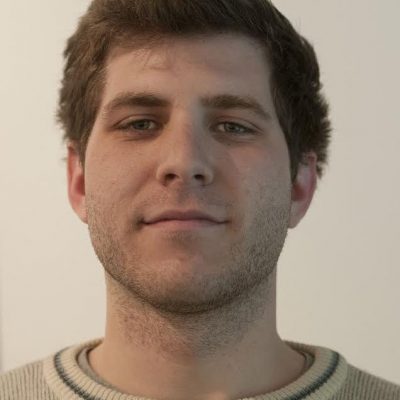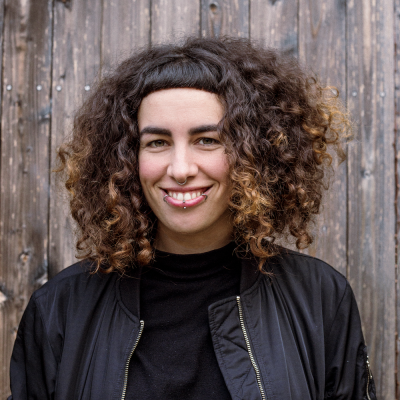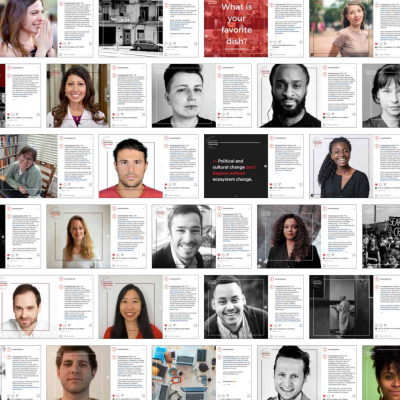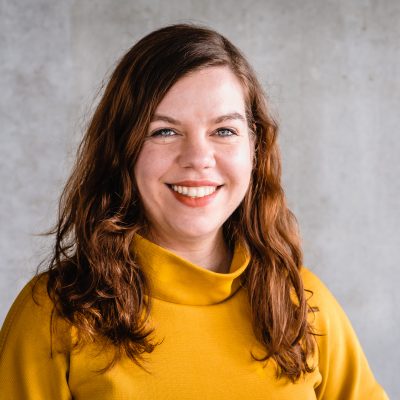Article
Landecker Democracy Fellow DeLesslin George-Warren is a queer artist, researcher, and organizer from Catawba Indian Nation. His wide ranging work encompasses performance art, installation art, community education as well as food sovereignty and language revitalization.
Despite living in a time of rapidly developing technologies, many communities, particularly indigenous communities, still do not have access to basic technologies such as computers and Wi-Fi. This problem is called the ‘Digital Divide’ and is labeled as a problem of infrastructure (for example, have broadband internet cables and cellular towers been installed in a community?). Many native communities are actively addressing this through infrastructure investments. However, other issues still remain, such as digital literacy (for example, does someone with access to a computer and the internet know how to use it?).
Native Americans represent 0.03% or less of Science, Technology, Engineering, and Math (STEM) workers in the United States.
Aside from infrastructure and literacy, the third area of concern is the lack of representation in the development of technology. According to various assessments, Native Americans represent 0.03% or less of Science, Technology, Engineering, and Math (STEM) workers in the United States, despite these communities having unique technological needs and concerns that are often misunderstood by non-Native people. Furthermore, when Native communities collaborate with non-Native technologists the resulting products are usually proprietary, meaning that a company or individual owns that technology. This means that even if a community has the capacity to edit or adapt technology to their needs, they may be legally unable to modify the already existing products.
DeLesslin will work with Natives in Tech to create a series of campaigns around initiatives.
Thankfully, there is already an alternative model being used to power the entire internet: the open source model. Open source licensed software is software that can be used by anyone for any reason including copying and editing. During the course of the fellowship, DeLesslin will work with Natives-in-Tech, a 501(c)3 non-profit dedicated to support indigenous technologists, to continue developing a network of creators, users, and supporters. DeLesslin will work with Natives in Tech to create a series of campaigns around initiatives including:
- Indigemoji: an open-source emoji set featuring flags of indigenous nations as well as icons reflecting the long and varied traditions of iconography in indigenous communities with the goal of preparing these emojis for submission to UNICODE. In the meantime, the emoji sets will be freely available for people to use.
- Native Owned Businesses: a website showcasing Native owned businesses in tech, arts, and beyond.
- Lingo Hack-a-thon: an event bringing together language activists, speakers, artists, teachers, and technologists to create ideas for an open-source alternative to popular language-learning software, intentionally created for-and-by indigenous peoples and endangered language communities
Each campaign will focus on building the community of supporters, technologists, artists, and community members around the Natives in Tech space. To support this work, please visit this website.

Throughout these campaigns, DeLesslin will continue developing the Catawba Langauge Project app in collaboration with his community. To experience the language app for yourself, click here.
Further Resources
-
Landecker Fellow DeLesslin "Roo" George-Warren - Bridging Catawba Nation’s digital divide
Humanity in Action catches up with Landecker Fellow DeLesslin "Roo" George-Warren to ask about his Action Project.
-
Food, Language, and Land-based Education in the Catawba Nation
On March 16th, Landecker Democracy Fellow and Humanity in Action Senior Fellow DeLesslin “Roo” George-Warren gave a virtual lecture for RISD’s Nature–Culture–Sustainability Studies MA program.
-
DeLesslin George-Warren's grant to teach Catawba language
Earlier this month, The Herald, a South Carolina-based newspaper, interviewed Landecker Democracy Fellow and Humanity in Action Senior Fellow DeLesslin "Roo" George-Warren. The interview addresses why DeLesslin returned to their home community, the Catawba Nation, and their project as a Landecker Democracy Fellow.




